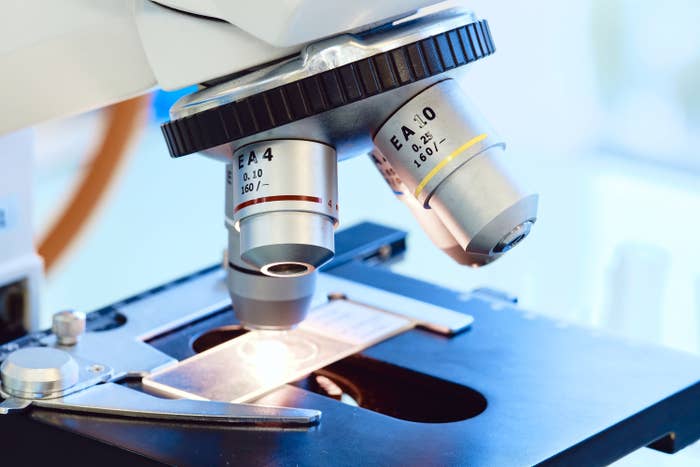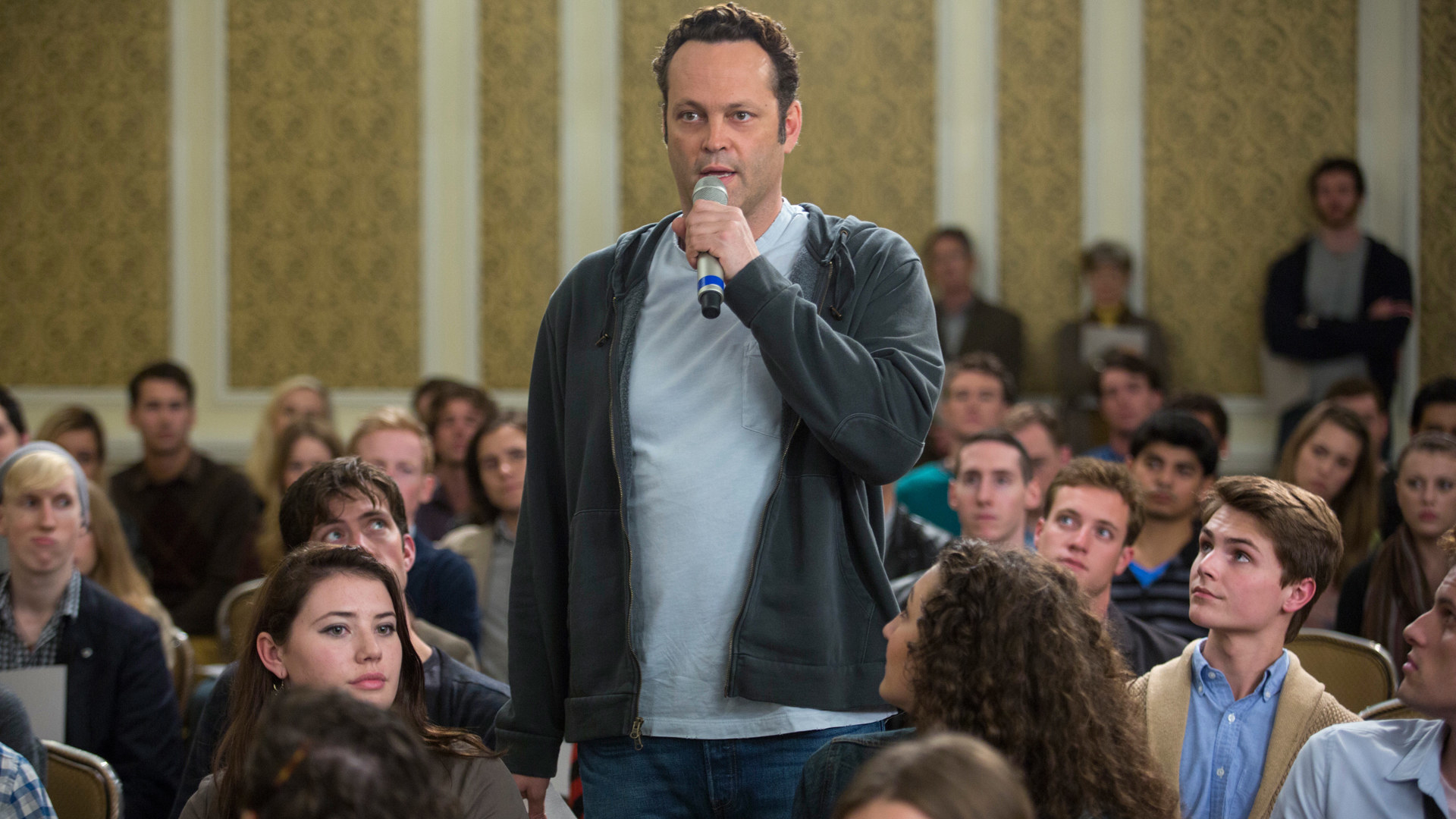On today's episode of BuzzFeed Daily, we broke down the top pop culture headlines AND discussed the donor-conceived community. You can listen below or scroll down to read more about the interview!
Listen to BuzzFeed Daily on the iHeartRadio app, Apple Podcasts, Spotify, Google Podcasts, or wherever else you might listen to your favorite podcasts!
So let's dive right into it! Recently we talked to The Atlantic’s Sarah Zhang about DNA donors and the movement trying to change anonymity laws. Here's some of what we learned:
BuzzFeed Daily: You wrote a fascinating piece in The Atlantic about the children of sperm and egg donors and the laws regarding donor anonymity. Can you walk us through the broad strokes of your piece for our listeners?

BuzzFeed Daily: One of the main figures in your piece is an Australian biologist named Damian Adams, who himself is donor-conceived. So his search for his biological father culminated with him successfully lobbying the state of Victoria to retroactively abolish donor anonymity laws. I wonder, was there any kind of backlash from the donor community to that lobbying change? Because I can imagine if you donated under the assumption that you would have anonymity for life, it might be sort of jarring to suddenly have the laws change and realize that you might be getting a phone call soon.
SZ: Yeah, that's a great question. So, one of the interesting things that I did not quite get into in my story is that among the people who are advocating for the end of anonymity was actually a group of sperm donors — people who had gone through this process thinking it was going to be anonymous. They called themselves the MAD Men at the time, the Melbourne Anonymous Donors, and they were speaking up saying that they wanted to get to know their biological children. Of course, sperm donors are not a monolith. People have different feelings about this. I'm sure there are people who were very upset or surprised to realize that this thing that they had done 25 years ago now has a totally different meaning. But it's also the case that if you're someone who wants to keep this a secret, you're probably not going out and talking to people and giving interviews about it.
I get asked this question a lot: If sperm donation is no longer anonymous, are we going to just have way fewer donors? And it's actually surprisingly hard to find good numbers. So as you mentioned, Australia, a part of Australia, no longer has anonymous donations. The United Kingdom also got rid of anonymous donations in 2005. And so there have been some reports of there being maybe fewer people who are willing to donate, but maybe that changes over time, and it kind of comes out as a wash.
What is true is that the people who are willing to donate are different, right? If the stereotypical person before who was donating was someone who was young and just wanted some extra money, maybe they're thinking about this a little bit harder. They don't want to do that anymore. But I've also heard that maybe the sperm donor profile is people who are a little bit older who explicitly want to help people to have children, and they're still willing to donate.
There is a sperm shortage, just worldwide, but that also has to do with the fact that the demand for sperm is a lot higher. You have a lot more single women and a lot more lesbian couples going to sperm banks than you did 30 or 40 years ago.
BuzzFeed Daily: It turns out that the donor-conceived community is very well-organized and vocal in its advocacy. In your piece, you cited author Peter Boni, who learned he was donor-conceived at age 49, and is advocating for a "Donor-Conceived Bill of Rights." Can you go into some more detail about that?

BuzzFeed Daily: The sort of de facto governing body for donor conception is the American Society of Reproductive Medicine, which is now just starting to address the debate around the rights of donor-conceived people. You mentioned in your piece that fertility is a multibillion-dollar industry that continues to grow every year. Do you get the sense that the ASRM and the rest of the fertility industry might push back against donor-conceived advocacy, if it starts to affect their bottom line?
SZ: I'm really curious to see what happens. So in my piece, I mentioned that the American Society of Reproductive Medicine actually had an annual meeting this week, and there was a panel on Monday that was about open-ID donations. I think the title was something like "What Are the Children Saying?" And there were no donor-conceived children or adults on the panel. I think it was maybe one parent and then maybe four people who worked as either counselors or nurses within the fertility industry.
And so, one thing that happened in between me asking ASRM about this panel and this panel actually going on is that they did reach out to a donor-conceived group, and they added a video of people talking about their own experiences and what they want. So I think you're starting to see a little bit more dialogue. There's a parallel to adoption — I think adoption agencies have also really changed how they work. My colleague Olga Khazan wrote a story about this as well, but there are fewer children who are being placed into adoption in the US now, and adoption agencies have started to focus less on trying to adopt kids out and a little bit more on foster care and making sure siblings get to stay together.
So I think you could see the industry start to change. Thirty years ago, the context of sperm donation was just very different than it is now. And who knows how much more things are going to change socially in 30 or 40 years? So it's a difficult thing to say, exactly, what should be happening or what will happen.
BuzzFeed Daily: And then, you know, there's this whole other game happening at the same time and that's AncestryDNA and 23andMe, which you bring up in your piece. And I'm just interested to know how these companies play into this conversation of donor-conceived laws and anonymity. They're basically like, "Well, the ASRM is figuring out their stuff." We've got 23andMe doing their own stuff, and I mean, they're on different wavelengths, but playing in the same arena.
“You spend your whole life looking for your family and here he is” – Helen #BornWithoutTrace #LongLostFamily
SZ: Right, it sort of doesn't matter if fertility clinics offer anonymous or non-anonymous donations, right? Because essentially they're all non-anonymous in the age of DNA. You know, as one genetic counselor I spoke to said, you kind of have to be living under a rock to think that you could be an anonymous sperm donor today at this point. Without any formal regulation, even the other things we're talking about, like how many offspring a donor can have, or if a donor lies about who they are — all that stuff is going to come out if it's no longer anonymous. That stuff could only happen because we allow donors to be anonymous.
So, yeah, regardless of what the former regulations are like, DNA has already changed the game. I will say, just in terms of how important DNA is, how easy it is, to go find a biological parent — in some cases, people really luck out and it's very easy and they get like a direct match. Maybe the donor or a donor's kid and you find out right away or a first cousin the event. But sometimes it can be pretty hard. It's not like everyone's going to take a DNA test and find out who their biological donor is.
So, it turns out that Cardi B and Penn Badgley are big fans of each other.
penn badgley and cardi b changing their profile pics to each other is literally killing me???
After a 2019 video of Penn praising Cardi’s quote “authenticity” on social media resurfaced, Cardi quote tweeted it, saying, “OOOOMMFFFGGGGGG HE KNOWS ME !!!😱😱😱😱😱😱😱😱OMMMGGGG!!!!!!Yoooo like I’m famous famous.”
It seems like Penn was just as surprised by Cardi’s reaction as she was by the video, because he then quote tweeted her, simply saying “I-”
The pair then changed their profile pics to photos of each other, because why not?
